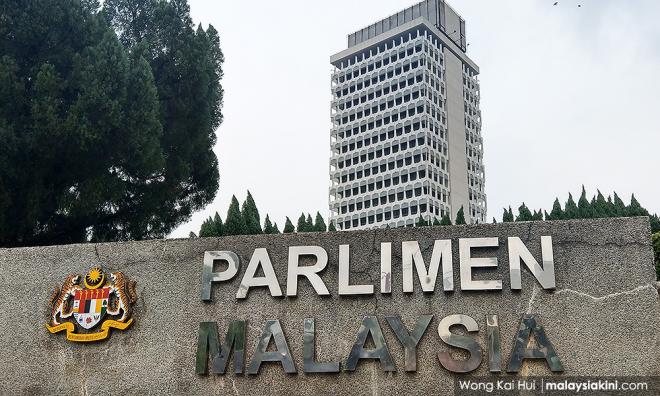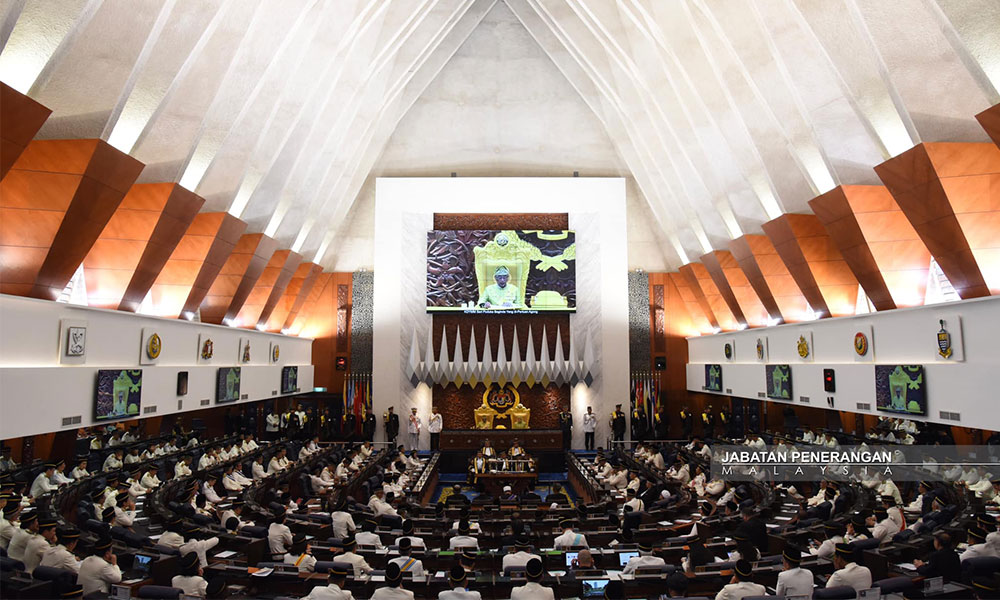
So far, the debate about the impending one-day sitting of Parliament tomorrow has centred around whether a one-day royal address-only Parliament session is legal or constitutional.
However, it is my contention that tomorrow's meeting suffers from a much more fundamental flaw - it has not been correctly called.
The proclamation summoning Parliament to begin its third session and to have its first sitting of the first meeting was only published in the Government Gazette on May 6. This document P.U.(A) 144/2020 is available for download here.
If one looks at the proclamation, it is quickly obvious that it is a proclamation summoning Parliament to meet on March 9. This was the original intended start date of the third session under the Pakatan Harapan government. However, there is an asterisk on the date March 9 and a footnote which reads:
"The date March 9 appointed by the Yang di-Pertuan Agong for the first meeting of the third session of the fourteenth Parliament had been varied by the prime minister, as the leader of the House, to May 18, 2020, in exercise of the powers conferred upon him by the proviso to paragraph (2) of Standing Order 11 of the Standing Orders of the Dewan Rakyat."
It is my argument that the proviso to paragraph (2) of Standing Order 11 of the Standing Orders of the Dewan Rakyat does not give the prime minister the power to vary the date of March 9.
Standing Order 11 reads as follows:
"(1) The first sitting of the House in each session shall be held in such place on such day and at such hour as the Seri Paduka Baginda Yang di-Pertuan Agong may by proclamation appoint.
"(2) Subject to the provisions of paragraph (1), the leader or deputy leader of the House shall determine at least 28 days before the commencement of each session, the dates on which the House shall meet in the session: Provided that the leader or deputy leader of the House may vary from time to time the dates so fixed."
The government is relying on the power granted to the leader of the House (in the case of the Malaysian Parliament, this is the prime minister) to vary "the dates so fixed". However the reference to the phrase "the dates so fixed" is to "the dates on which the House shall meet in the session". The proviso that follows the wording of paragraph (2) is only applicable to the dates fixed by virtue of paragraph (2). It cannot apply to the date fixed in paragraph (1), which is fixed by the Yang di-Pertuan Agong.

In other words, the prime minister does not have the power to, and cannot, change the date Parliament is summoned to meet. To emphasise this point, paragraph (2) starts with the words "Subject to the provisions of paragraph (1)".
Paragraph (2) must be read subject to the provisions of paragraph (1). It is the Yang di-Pertuan Agong who fixes the start date, and the leader of the House then decides when are the meeting dates of the sitting of Parliament for the rest of the year.
One can imagine that it is those subsequent dates that can be changed from time to time, for various reasons. But what is clear is that the leader of the House cannot change the first date, which is when Parliament is summoned to meet.
Another point to note is that the leader of the House must determine (and presumably inform the honourable members) the dates of the meetings for the rest of the year at least 28 days before the commencement of the first meeting. But if the proclamation was only published in the Government Gazette on May 6, was it published out of time?
True, the exact date of the proclamation is stated as Feb 14. Yet if the proclamation is only publicly published on May 6, how would the leader of the House know prior to its publication? This is at the very least a clear breach of form, if not of substance.
If my analysis is correct, what then is the consequence? Foremost, it must mean that there has been no valid summoning of Parliament to meet tomorrow. The only possibly valid summoning of Parliament was on March 9 but that date passed without Parliament being summoned.
Can the Yang di-Pertuan Agong issue a fresh proclamation? He can, but it should be noted that any meeting that commences after June 18 violates Article 55(1) of the Federal Constitution which requires that a period no longer than six months can elapse between two sittings of Parliament. The Dewan Negara last sat on Dec 19, 2019, so the last possible date for Parliament to sit again is June 18.
There is still time for a new and correct proclamation to be issued. However, if the proper sequence to be followed is for the proclamation to be issued first, and published in the Government Gazette and only then can the leader of the House determine the dates of the meetings of the session for the rest of the year and inform honourable members at least 28 days before the date of the first meeting, the window to be able to do that is fast closing.
To summarise, what seems clear is that Parliament cannot meet tomorrow. The summoning of Parliament on that date utilising merely a re-dated proclamation and relying on supposed powers to vary the date by the prime minister in his capacity as leader of the House is legally flawed.
ANDREW KHOO is co-chair of the Bar Council Constitutional Law Committee. He writes here in his personal capacity. - Mkini


No comments:
Post a Comment
Note: Only a member of this blog may post a comment.